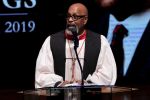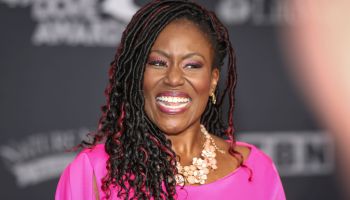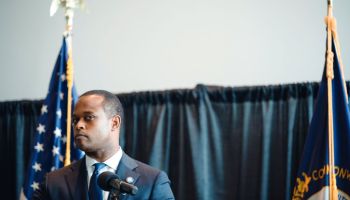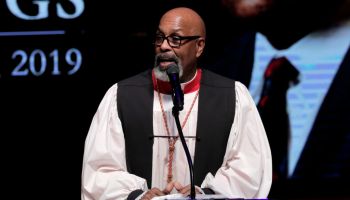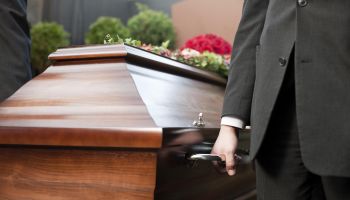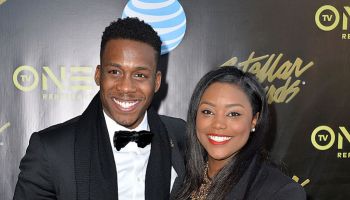There was a growing sense of incredulity over a grand jury’s decision to indict a fired cop for endangering the lives of Breonna Taylor‘s neighbors instead of recommending anything less than manslaughter for the egregious — and preventable — police killing in Louisville.
Ben Crump, a civil rights attorney representing Taylor’s family, appeared on NBC’s “Today” show Thursday morning and said the decision to charge Brett Hankison with wanton endangerment “doesn’t make sense.” He said Taylor’s family was “outraged, they were insulted, and they were mostly offended.” Crump then said what was probably on a lot of people’s minds, too: “We’re trying to figure out what did the Kentucky Attorney General Daniel Cameron present to the grand jury.”
That seems to be the central question that Cameron was dodging during a press conference after the decision was announced by Jefferson County Circuit Judge Annie O’Connell on Wednesday. When asked about it, he would only say that the grand jury proceedings were “secret.” It’s unclear whether the findings from his office’s investigation that were presented to the grand jury are public information.
The indictment itself challenges logic. It is based on the premise that Hankinson, along with Sgt. Jonathan Mattingly and detective Myles Cosgrove, all fired their guns a total of at least 32 times while they botched the execution of a suspiciously obtained no-knock warrant at Taylor’s apartment on March 13. Cameron said one single witness claimed he or she heard police announce themselves and knock, but at least a dozen other witnesses interviewed said they didn’t hear anything before bullets rang out.
Adding insult to literal injury, Cameron during his press conference suggested that Taylor’s boyfriend, Kenneth Walker, is to blame for her death. Walker said he suspected burglars when he heard someone at the apartment door. When it was forced in off the hinges, Walker got his legally permitted gun and fired a shot toward the door that hit Mattingly. Therefore, Cameron said, “Mattingly and Cosgrove were justfied in their use of force after having been fred upn by Kenneth Walker.”
That left Hankison, the lone cop of the trio who was fired, as the fall guy who was hit with a relative slap on the wrist with charges that at best will result in an acquittal and at worst would send him to prison for an unlikely 15 years.
Walker is now suing the LMPD, the Commonwealth of Kentucky and the Louisville/Jefferson County metro government for $10.5 million in part because he said the cops tried “to silence me and cover up Breonna’s murder” by initially charging him with a crime.
Given all of the above, it was only logical to wonder what exactly Cameron presented to the grand jury to base its decision on. Cameron seemingly went out of his way to defend the officers’ roles in trying to serve the no-knock warrant that was issued for someone who wasn’t even at Taylor’s home. He even said there was no conclusive evidence that Hankison, who shot his gun from an outside sliding glass door and through a bedroom window, fired the single bullet that killed Taylor.
It almost seemed like Cameron and his office may have presented the grand jury with information in an effort to “posthumously frame Breonna Taylor to clear police,” as reports from earlier this month suggested had happened.
Law enforcement experts have said all three cops violated protocol with the amount of shots they fired — an offense that in most other cases would prompt charges of at least reckless endangerment, a much harsher charge than wanton endangerment, a Class D felony.
The writing was all but on the wall for the kind of decision to be reached Wednesday. It was nearly six months after Taylor was killed that Cameron finally empaneled the grand jury. At the time, his office’s presentation to the grand jury was expected to take about two days.
Prior to that, Cameron — a Black Republican and avid supporter of Donald Trump who has been described as Mitch McConnell‘s “protégé” — and his office have been accused of both politicizing the case and dragging their feet when it came to bringing charges.
He was also criticized for speaking at the Republican National Convention in last month instead of working on Taylor’s investigation and prosecutors working for him were recently accused of trying to slander Taylor’s reputation through duplicitous means.
In particular, lawyers for Taylor’s family slammed reports that local prosecutors offered Taylor’s incarcerated ex-boyfriend Jamarcus Glover a plea deal if he would claim she was a co-defendant in his drug case.
The reported plea deal suggests that law enforcement was desperately looking for a way to incriminate Taylor and assassinate her character in death, which may have helped prevent Mattingly and Cosgrove from also being indicted. Glover, however, refused to lie to police about Taylor, who was employed as an EMT and working on the front lines of the fight against the coronavirus.
SEE ALSO:
Breonna Taylor Grand Jury Indicts 1 As Killer Louisville Cops ‘Got Away With Murder’
More Cops Investigated In Breonna Taylor’s Killing
What Did Kentucky AG Daniel Cameron Actually Present To The Breonna Taylor Grand Jury? was originally published on newsone.com




